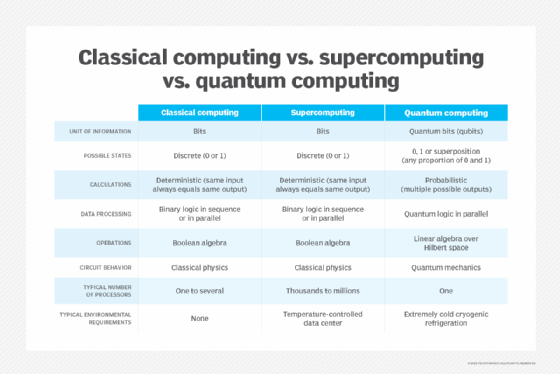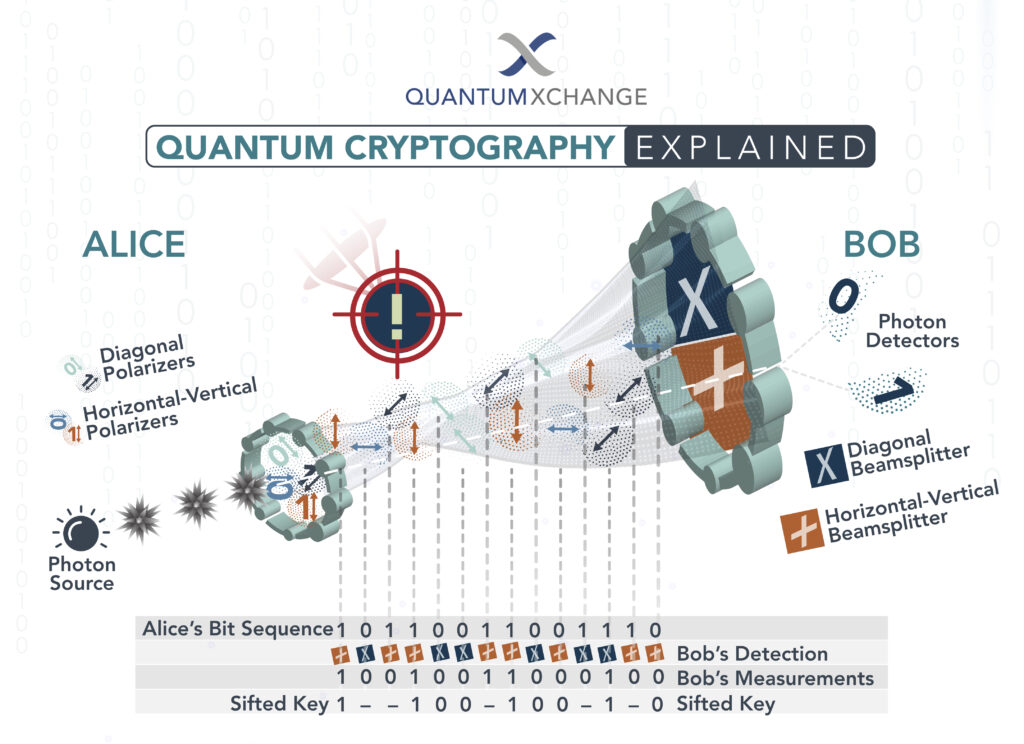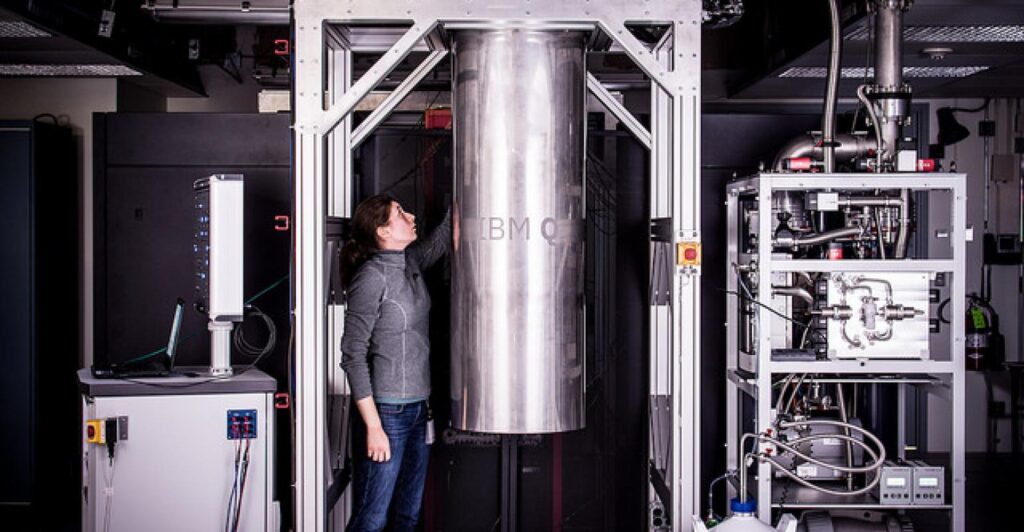Quantum computing is an emerging technology that promises to revolutionize the world of computing as we know it. Unlike classical computing that relies on bits, quantum computing leverages the laws of quantum mechanics to perform computations using quantum bits or qubits. This has led to the development of powerful algorithms that are capable of solving problems that are beyond the reach of classical computers. However, the question that arises is whether there are any deterministic algorithms in quantum computing.
Deterministic algorithms are those that produce the same output given the same input. They are used in a wide range of applications, including cryptography and optimization. In classical computing, there are several deterministic algorithms such as binary search, sorting algorithms, and linear search, among others. But in quantum computing, the situation is different. While there are several quantum algorithms that are known to be faster than their classical counterparts, most of them are probabilistic in nature. This means that they produce the correct output with a certain probability, and the probability of getting the correct answer increases with the number of qubits used.
Are Any Deterministic Algorithms in Quantum Computing?
Quantum computing is an emerging technology that has the potential to revolutionize computing. It has the potential to solve problems that no other computing technology can solve. This article will discuss if there are any deterministic algorithms in quantum computing.
What is a Deterministic Algorithm?
A deterministic algorithm is an algorithm that produces the same output for the same set of input values. This means that the output of the algorithm will always be the same when the same input is provided. This type of algorithm is also known as a “deterministic function” or a “deterministic procedure.” Deterministic algorithms are used to solve a wide variety of problems in computer science and other fields.
Deterministic algorithms are important because they can be used to solve problems that cannot be solved by other algorithms. For example, some problems in cryptography require the use of a deterministic algorithm to ensure the security of the system. Deterministic algorithms are also used in artificial intelligence, machine learning, and other areas of computer science.
Are There Deterministic Algorithms in Quantum Computing?
The answer to this question is yes. There are several deterministic algorithms that have been developed for use in quantum computing. These algorithms are used to solve problems that are too complex for classical computers to solve. For example, the Shor’s algorithm is a deterministic algorithm that can be used to factor large numbers. This algorithm has been used to break some of the most difficult cryptographic codes.
Other deterministic algorithms used in quantum computing include Grover’s algorithm, which is used to search large databases, and the Bernstein-Vazirani algorithm, which is used to find the solution to a problem in linear time. There are also algorithms that are used to solve optimization problems, such as the Quantum Approximate Optimization Algorithm (QAOA).
Conclusion
Quantum computing has the potential to revolutionize computing and solve problems that are too complex for classical computers to solve. There are several deterministic algorithms that have been developed for use in quantum computing. These algorithms are used to solve problems that are too complex for classical computers to solve. Deterministic algorithms are important because they can be used to solve problems that cannot be solved by other algorithms.
Frequently Asked Questions
This article covers questions and answers related to deterministic algorithms in quantum computing.
What are deterministic algorithms in quantum computing?
Deterministic algorithms in quantum computing are algorithms that use quantum mechanical components, such as qubits (quantum bits), to produce a set of predetermined results. These algorithms allow for exponential speedup in certain types of calculations, such as finding prime numbers and solving optimization problems. By using the principles of quantum mechanics, quantum computing can achieve faster and more efficient solutions than traditional computer algorithms.
What are the advantages of using deterministic algorithms in quantum computing?
The main advantage of using deterministic algorithms in quantum computing is that it allows for exponential speedup for certain types of calculations. Because of the way quantum computers are able to process information, they can solve problems much faster than traditional computers. Additionally, quantum computing allows for the manipulation of information in ways that classical computers cannot. This allows for the development of new algorithms and techniques that can be used to solve complex problems.
What types of problems can be solved with deterministic algorithms in quantum computing?
Deterministic algorithms in quantum computing can be used to solve a wide range of problems, including finding prime numbers, solving optimization problems, and simulating physical systems. Additionally, quantum computing can be used to develop new algorithms, such as those used for machine learning.
Are there any limitations to using deterministic algorithms in quantum computing?
Yes, there are certain limitations to using deterministic algorithms in quantum computing. For example, the size and complexity of the problems that can be solved with quantum computing are limited by the number of qubits available. Additionally, the algorithms must be tailored to the specific problem in order to achieve optimal performance.
Are there any applications of deterministic algorithms in quantum computing?
Yes, deterministic algorithms in quantum computing have a wide range of applications. They can be used to develop new algorithms and techniques for machine learning, simulate physical systems, and solve optimization problems. Additionally, they can be used to develop new cryptography algorithms, which can be used to protect sensitive data.

In conclusion, the field of quantum computing is rapidly advancing, and with it, the search for a deterministic algorithm continues. While some algorithms have been developed that show promise for certain types of problems, the search for a universal deterministic algorithm is ongoing. As researchers continue to explore the possibilities of quantum computing, it is likely that new breakthroughs will be made, and new algorithms will be developed that push the boundaries of what is currently possible.
As we move forward into a future that is increasingly dominated by technology, the role of quantum computing will continue to grow in importance. Whether it is used to solve complex mathematical problems or to develop new materials and chemicals, quantum computing has the potential to revolutionize the way we live and work. And while the search for a universal deterministic algorithm may be a daunting task, it is one that is well worth pursuing, as the benefits of such an algorithm could be truly transformative. As such, the search for a deterministic algorithm in quantum computing will continue to be one of the most exciting and important areas of research in the field.




